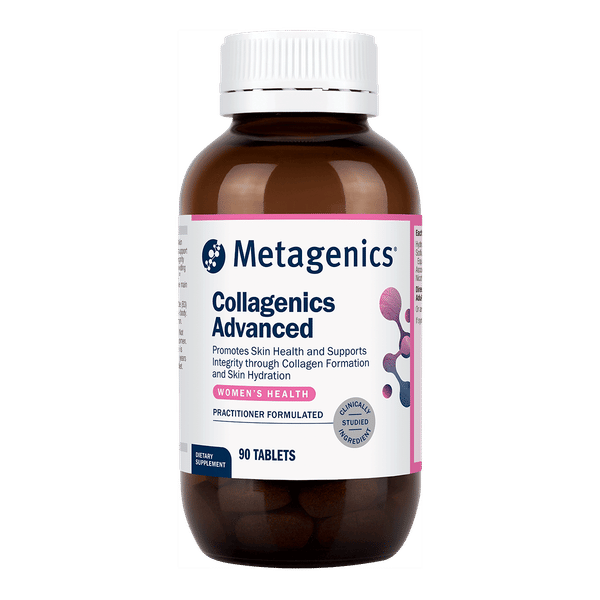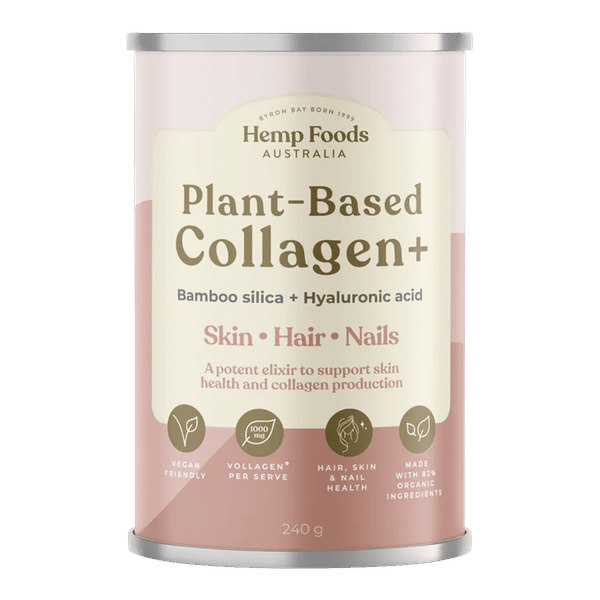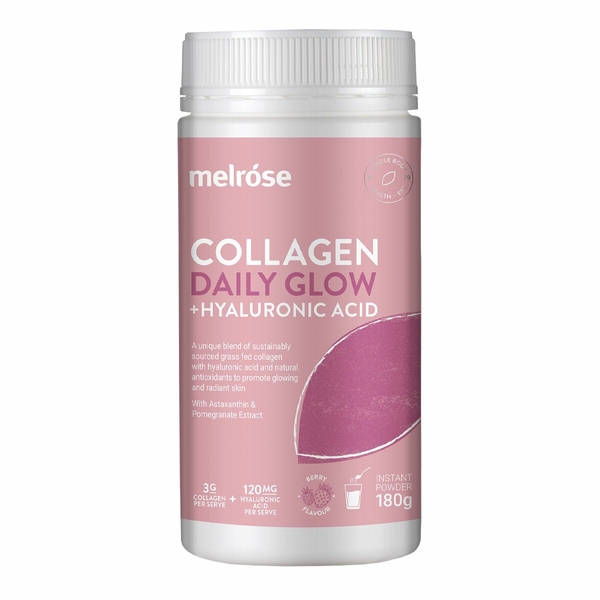
Hyaluronic acid
Scientific names: Glycosaminoglycan
Alternate names: Acide Hyaluronique, Ácido Hialurónico, Glycoaminoglycane, Hyaluran, Hyaluronan, Hyaluronate, Hyaluronate de Sodium, Hyaluronate Sodium, Hylan, Sodium Hyaluronate
Actions: Anti-inflammatory, Joint, Wound healing
Background
Hyaluronic acid is a natural substance found in the fluids in the eyes and joints. It acts as a cushion and lubricant in the joints and other tissues.
Different forms of hyaluronic acid are used for cosmetic purposes. Hyaluronic acid might also affect the way the body responds to injury and help to decrease swelling.
People also commonly take hyaluronic acid by mouth and apply it to the skin for UTIs, acid reflux, dry eyes, wound healing, aging skin, and many other conditions, but there is no good scientific evidence to support most of these other uses.
Different forms of hyaluronic acid are used for cosmetic purposes. Hyaluronic acid might also affect the way the body responds to injury and help to decrease swelling.
People also commonly take hyaluronic acid by mouth and apply it to the skin for UTIs, acid reflux, dry eyes, wound healing, aging skin, and many other conditions, but there is no good scientific evidence to support most of these other uses.
Safety Safety definitions
When taken by mouth: Hyaluronic acid is likely safe when used appropriately. Allergic reactions might occur but are rare.
When applied to the skin: Hyaluronic acid is likely safe when used appropriately. Allergic reactions might occur but are rare.
Breast-feeding: There isn't enough reliable information to know if hyaluronic acid is safe to use when breast-feeding. It's not clear if it's excreted in breast milk and what effect that might have on an infant. Stay on the safe side and avoid use.
Radiation therapy: Applying hyaluronic acid to the skin while receiving radiation therapy might increase the risk of some skin complications. If you are receiving radiation therapy, don't use hyaluronic acid on your skin.
Hardening of skin and connective tissue (scleroderma): Applying hyaluronic acid to the skin might make skin ulcers worse in people who have a condition called scleroderma. If you have scleroderma, don't use hyaluronic acid on your skin.
When applied to the skin: Hyaluronic acid is likely safe when used appropriately. Allergic reactions might occur but are rare.
Special Precautions & Warnings:
Pregnancy: There isn't enough reliable information to know if hyaluronic acid is safe to use when pregnant. Stay on the safe side and avoid use.Breast-feeding: There isn't enough reliable information to know if hyaluronic acid is safe to use when breast-feeding. It's not clear if it's excreted in breast milk and what effect that might have on an infant. Stay on the safe side and avoid use.
Radiation therapy: Applying hyaluronic acid to the skin while receiving radiation therapy might increase the risk of some skin complications. If you are receiving radiation therapy, don't use hyaluronic acid on your skin.
Hardening of skin and connective tissue (scleroderma): Applying hyaluronic acid to the skin might make skin ulcers worse in people who have a condition called scleroderma. If you have scleroderma, don't use hyaluronic acid on your skin.
Effectiveness
NatMed Pro rates effectiveness based on scientific evidence according to the following scale: Effective, Likely Effective, Possibly Effective, Possibly Ineffective, Likely Ineffective, Ineffective, and Insufficient Evidence to Rate.
Possibly effective Effectiveness definitions
- Dry eye. Using eye drops containing hyaluronic acid seems to help relieve dry eye symptoms.
- Leg sores caused by weak blood circulation (venous leg ulcer). Using a gauze containing hyaluronic acid seems to reduce the size of sores and promote healing.
Dosing & administration
Hyaluronic acid is available in many different types of topical products, including creams, gels, mouthwashes, and eye drops. In supplements, there isn't enough reliable information to know what an appropriate dose of hyaluronic acid might be. Keep in mind that natural products are not always necessarily safe and dosages can be important. Be sure to follow relevant directions on product labels and consult a healthcare professional before using.
Interactions with pharmaceuticals
It is not known if Hyaluronic Acid interacts with any medicines. Before taking Hyaluronic Acid, talk with your healthcare professional if you take any medications.
Interactions with herbs & supplements
There are no known interactions with herbs and supplements.
Interactions with foods
There are no known interactions with foods.
Products
View all productsPractitioner product
Per 20 g:
- Hyaluronic acid sodium salt (Sodium hyaluronate) 150 mg
- Amino acids (Amino acid complex) 1000 mg
- Silica - colloidal anhydrous 250 mg
- Cannabis sativa powder
- Beta vulgaris (root) powder (Beetroot)
- Euterpe oleracea (berry) ext. (Acai)
- Vaccinium corymbosum juice dry
- Prunus cerasus
- Punica granatum juice dry
- Fragaria ananassa (juice) powder (Strawberry)
- Aristotelia chilensis (Maqui berry)
- Malpighia glabra
- Coconut milk powder
- Tapioca maltodextrin
- Acacia sp.
- Natural flavours
- Sunflower lecithin
- Bambusa breviflora
- Citric acid anhydrous
- Thaumatin
- Maltodextrin
RRP: $50.00$42.49Save: 15%
Create account
Per 5.5 g (Berry):
- Hyaluronic acid sodium salt (Sodium hyaluronate) 115.5 mg
- Hydrolysed bovine collagen peptides 2.87 g
- Beta vulgaris powder
- Euterpe oleracea (berry) ext. (Acai)
- Punica granatum
- Fragaria ananassa (Strawberry)
- Rubus fruticosus (Blackberry)
- Fermented Prebiotic Isomalto-oligosaccharides (Fermented prebiotic IMO)
- Natural flavours
- Silicon dioxide
- Haematococcus pluvialis
- Citric acid anhydrous
- Berry flavour
- Luo Han Guo (fruit) ext. (Monk fruit)
- Ribes nigrum
RRP: $39.95$33.96Save: 15%
Create account
Per 5 g (Mixed Berry):
RRP: $69.95$62.95Save: 10%
Out of stock
Create account
return unknown
vital.ly has licensed monographs from TRC Healthcare.
This monograph was last reviewed on 16/01/2025 11:00:00 and last updated on 31/07/2022 06:24:43. Monographs are reviewed and/or updated multiple times per month and at least once per year.
Natural Medicines disclaims any responsibility related to medical consequences of using any medical product. Effort is made to ensure that the information contained in this monograph is accurate at the time it was published. Consumers and medical professionals who consult this monograph are cautioned that any medical or product related decision is the sole responsibility of the consumer and/or the health care professional. A legal License Agreement sets limitations on downloading, storing, or printing content from this Database. No reproduction of this monograph or any content from this Database is permitted without written permission from the publisher. It is unlawful to download, store, or distribute content from this site.








